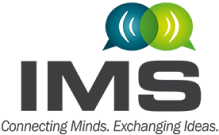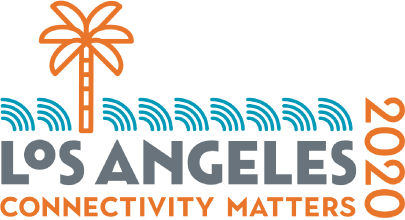Young Professionals
Please join us for the 2020 International Microwave Symposium’s Young Professionals Panel Session. The theme of this year’s session is “Evolution of a Young Professional”. The purpose of this interactive session is to showcase and highlight Young Professionals in different stages of their careers. Each panelist represents varying career paths, including defense, government, academia, and private industry. Every Young Professional will be able to connect with these hard working and inspirational young leaders, and receive advice for the next steps in their own careers.
Due to the COVID-19 pandemic this year’s session will be held by means of a live video stream. Panelists will have the opportunity to introduce themselves and present their career paths. This will be followed by a live audience question and answer session, focused on career development and professional advisement.
This session will showcase four panel members and a moderator, all representing the many potential career paths of a successful Young Professional:
Dr. Mario Milicevic is a communication systems engineer at MaxLinear in Irvine, CA, where he is responsible for the development of algorithms and system-on-chip architectures for high-performance semiconductor products for datacenter optical interconnect, wireless 5G access and backhaul networks, and full-duplex broadband cable Internet. In 2017, he received the Ph.D. degree from the University of Toronto, where his research focused on the design of error-correction decoders for integrated circuits and quantum cryptography. In 2019, he became the first recipient of the inaugural IEEE Theodore W. Hissey Outstanding Young Professional Award. He currently serves as a peer reviewer for several IEEE journals, and is the Chair of the IEEE Public Visibility Committee.
Prof. Asimina Kiourti is an Assistant Professor in the Department of Electrical and Computer Engineering at The Ohio State University where she leads the Wearable and Implantable Technologies group. From 2013 to 2016 she served as a Post-Doctoral Researcher and then a Senior Research Associate at Ohio State’s ElectroScience Laboratory. Prior to that, she received the Ph.D. degree in Electrical and Computer Engineering from the National Technical University of Athens, Greece (2013) and the M.Sc. degree from University College London, UK (2009). Prof. Kiourti’s research interests lie in bio-electromagnetics, wearable and implantable antennas, sensors for body area applications, and flexible textile-based electronics. Her publication record includes 10 book chapters, 10 patents (3 awarded, 7 pending), 55 journal papers, and over 80 conference papers. Her work has been recognized with over 40 scholarly awards, including the 2018 URSI Young Scientist Award, the 2014 IEEE EMB-S BRAIN Young Investigator Award, the 2013 Chorafas Foundation Outstanding Ph.D. Dissertation Award, the 2012 IEEE MTT-S Graduate Fellowship for Medical Applications, and the 2011 IEEE AP-S Doctoral Research Award. Prof. Kiourti is active in IEEE and USNC-URSI, where she serves in several elected and appointed roles. Her contributions have gained international reputation and have been featured by TechCrunch, Gizmodo, Times of India, Australia Network News, and the ALN Magazine, among others.
Jared Lucey received the B.S. degree in electrical engineering from University of Massachusetts, Amherst, MA, in 2007 and a M.S.E. degree in electrical engineering from the Johns Hopkins University, Baltimore, MD in 2011. In 2005, he joined the Microwave Instrument and Technology Branch, NASA Goddard Space Flight Center, Greenbelt, MD, where he served as a lead engineer on developments for the flight missions Global Precipitation Measurement (GPM) and Soil Moisture Active Passive (SMAP) as well as the CubeSat missions IceCube and CubeSat Radiometer RFI Technology Validation (CubeRRT). He is currently serving as the Associate Branch Head for the Microwave Instrument and Technology branch and a lead engineer on a maturation program for a Submillimeter Enceladus Life Fundamentals Instrument (SELFI). He was the recipient of the NASA Agency Award for Exceptional Service in 2017 and the NASA Agency Award for Outstanding Leadership in 2018.
Dr. Bo Marr: spent 10 years at Raytheon, during which time he was promoted to serve as RF Technical Area Director where he was involved in development and road mapping of many of Raytheon's major radio frequency (RF) based products, including ground, seeker-based, and airborne radar systems, electronic warfare systems, and communications systems. While at Raytheon, Dr. Marr won the CEO award for innovation, filed over 70 US and international patents, and was a technical lead on the Next Generation Jammer program. Bo has reviewed and facilitated 600 inventions and 100 peer reviewed papers as elected Raytheon IP Champion. Previous to Raytheon Bo was at IBM where he co-engineered the computing chips behind Watson. Bo is a Fellow of the National Science Foundation and holds a Ph.D. in electrical and computer engineering from Georgia Institute of Technology.
Moderator:
Dr. Caitlyn Cooke received her B.S. and M.S. degrees in electrical engineering both from the University of Colorado at Boulder in 2014 and 2016, respectively, and has recently completed her Ph.D. degree in electrical engineering at the University of Colorado at Boulder, focused on novel techniques for the reducing sensitivity degradation due to 1/f noise in InP HEMT based direct detection radiometers. She currently is an RF Design Engineer in NGC’s RF and Mixed Signals Department. Her research interests include submillimeter-wave MMIC design and packaging, and radiometry. She is the responsible design engineer on the SWIRP program, which will demonstrate 220 GHz and 680 GHz direct detection polarimeters. She is also the responsible design engineer for the IRaST program, focused on improving the performance of sub-millimeter wave direct detection receivers. From 2014 to 2017, she was with NASA Goddard Space Flight Center, involved with submillimeter-wave radiometers, including the IceCube, COSMIR, and WISM programs. She received the NASA Space Technology Research Fellowship in 2016, for research on millimeter-wave monolithic microwave integrated circuits for radiometer front ends.
Join us to support and connect with some amazing Young Professionals in our field!


